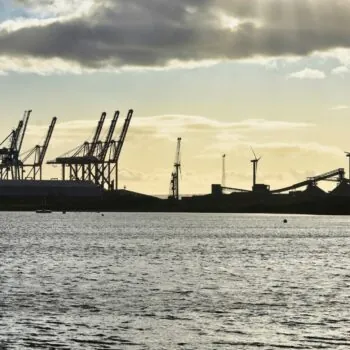On 7th July we are due to get first sight of how the Competition and Markets Authority thinks the British energy supply market should be changed. Few people will be prepared to argue that everything in the garden is rosy but there are equally few who understand what is really at stake. Of course there are lots of consumers who stoically refuse to change their supplier and reduce their annual energy bill by over £100 and, despite Government and regulators trying desperately to encourage us all to ‘switch and save’ for many years, the proportion of these disengaged consumers remains stubbornly high. But, to be honest, is it such a big issue if people are willing to leave this money on the table. Isn’t it up to them to decide what they do?
If this was just about individual consumers saving some money by switching to another similar – albeit cheaper – supplier then maybe it is not such a big deal. Maybe there would be no need to encourage consumers out of their lethargy. After all, it is difficult for energy suppliers to reduce costs compared to their competitors, and opportunities to differentiate based on service are limited. Hence, the best that could be hoped for from encouraging more people to switch is that everybody ultimately pays roughly the same for energy, and suppliers would be forced to operate at the lowest sustainable profit margin (which, admittedly, might be a little lower than is the case at the moment).
However, this way of thinking would be a big mistake. It isn’t just about saving money in the here and now. The energy world is on the cusp of a revolution and the country needs to be in a position to take advantage of these changes. Technology giants like Google and Apple are developing a range of new digital technologies with the stated ambition of fundamentally changing the world of power and, in addition, the costs of home generation and storage systems are rapidly reducing. Not only does this technology revolution raise the prospect of improving comfort and convenience as well as reducing costs for individual consumers, it potentially has much wider significance. It could hold the key to halting the upward spiral in energy costs and ensuring the country has a secure and decarbonised energy system at affordable prices – something that is in everyone’s interest.
Across the globe, it is being demonstrated time and time again that changing the way we use energy has the potential to avoid the need to build more power stations and pylons. Whilst some aspects of our energy use are non-negotiable – should England ever reach a World Cup final again, most of us will insist our televisions are working – other aspects are not. Delaying starting the washing machine by an hour, or temporarily switching off the fridge whilst it is closed, does not generally create a problem. As the use of electric cars and heating systems become more widespread, there will be many more significant opportunities to alter demand. And then there are businesses and industry where the potential to adjust energy usage is often much greater.
So, controlling energy demand has the potential to massively reduce overall energy system costs to the benefit of us all – but there is a problem. Whilst a tech-enabled lifestyle that includes a ‘home energy management system’ can deliver numerous benefits, the ability to control energy usage requires consumers to adjust their behaviour in some way or, more likely, spend money on some form of home automation system. Unfortunately, it is currently estimated that the savings on annual energy bills would be somewhat less than the £100 or so currently available through switching energy providers. If people cannot be encouraged to undertake the simple task of switching supplier when there is a direct and immediate benefit of over £100, how can we expect them to do something rather more complicated for a smaller saving? It appears that in the absence of further significant technology cost reductions and stellar marketing campaigns by retailers, it is likely that the problem of disengaged customers will be far worse for these new energy products and services than we see in the current switching market.
This is the essence of the challenge facing the Competition and Markets Authority. Viewed narrowly through the prism of the present, there is little to suggest that the market requires any fundamental reform. However, the energy system will not stay the same, and within a decade or so we will be facing an entirely different situation. The extent to which that future involves a smart and low carbon power system depends in large part on how consumers take up the opportunities available to them. Part of the solution will involve technical reforms to the market that ensure consumers can save as much money as possible from consuming energy more dynamically. However, the more critical issue is whether we can rely on retailers of these new services to drum up enough excitement and interest amongst a sufficient proportion of consumers such that they are prepared to devote the time and effort to engage with the opportunities. Experience from the current market situation is not promising. The way things currently stand, it is more likely that the majority of consumers will continue to make quick decisions about their energy purchasing and these quick thought processes are plagued by intuitive biases that lead to sub-optimal outcomes –for the individual and system alike. To avoid this situation, consumers must be given clear and simple choices over how they consume energy rather than being swamped by potential products from a range of suppliers – and this is a very different market from the one we have today.
The Competition and Markets Authority has been looking at the energy market for over a year and still has several months before it finally decides what to recommend. Given that the new Government has already committed to implement any recommendations, this will be an important moment. It is vital that the Authority thinks like real consumers rather than economic automatons and opens its eyes to how consumer behaviour can lie at the heart of an exciting energy system transformation.
This article first appeared on BusinessGreen.com



